Drone Nation
Drone Nation
The Political Economy of
Americas New Way of War
Geoff Martin
Erin Steuter
LEXINGTON BOOKS
Lanham Boulder New York London
Published by Lexington Books
An imprint of The Rowman & Littlefield Publishing Group, Inc.
4501 Forbes Boulevard, Suite 200, Lanham, Maryland 20706
www.rowman.com
Unit A, Whitacre Mews, 26-34 Stannary Street, London SE11 4AB
Copyright 2017 by Lexington Books
All rights reserved. No part of this book may be reproduced in any form or by any electronic or mechanical means, including information storage and retrieval systems, without written permission from the publisher, except by a reviewer who may quote passages in a review.
British Library Cataloguing in Publication Information Available
Library of Congress Control Number: 2016956011
ISBN 978-1-4985-4957-8 (cloth : alk. paper)
ISBN 978-1-4985-4958-5 (ebook)
 TM The paper used in this publication meets the minimum requirements of American National Standard for Information Sciences Permanence of Paper for Printed Library Materials, ANSI/NISO Z39.48-1992.
TM The paper used in this publication meets the minimum requirements of American National Standard for Information Sciences Permanence of Paper for Printed Library Materials, ANSI/NISO Z39.48-1992.
Printed in the United States of America
Acknowledgments
A book is a major, multiyear project during which authors accumulate debts of gratitude. For the cover art, we would like to thank artist Simon Robson, also known as Knife Party, for the powerful image entitled Click Boom. We are very grateful to Valerie Mansour for collaborating with us in editing this book and preparing it for the publishers consideration, making the text more accessible, clear, and concise.
Geoff Martin is grateful to Mount Allison Universitys Senate Committee on Research and Creative Activity, which in 20112012 awarded him a research stipend that provided him with some salary support to get a start on this project. These awards for academics in part-time teaching only positions are a rarity and it should be a priority across North America to make them more common. He also acknowledges his full-time employer, the Mount Allison Faculty Association, for providing him with a number of research days each year, without which he would not have been able to do his share of this project. Successive presidents and executives of the union have been unstinting in their support.
Throughout this project Geoff Martin has thought often about his ancestors and how they were touched by warfare over the last three hundred years. For his family this starts with the British-French wars of the eighteenth century, culminating in the English decision to expel the Acadian civilians from Atlantic Canada in 1755. Then a New Rochelle, New York, family was divided by the decision of one member, Major John Germain, to fight with the Westchester County militia during the US War of Independence, while the rest of the family migrated as Loyalists in 1783 to what became the Canadian province of New Brunswick. According to a surviving press clipping, another ancestor was present at the Relief of Lucknow, India, in 1858.
The twentieth century was the era of total war though periods of war were punctuated by even longer periods of nonwar. Many of his ancestors participated in the Great War (19141918) and World War II (19391945) as members of the Royal Canadian Army. One great uncle, Horace Morell, did not return. These disruptions also had a major impact on the home front, especially for the women and children. As we wrote about the changing nature of air war and of the role of the pilot, Martin thought about his late uncle Capt. George W. Morell, who served in the Royal Canadian Air Force for twenty years starting in the late 1940s. Uncle George never knew combat but he did know about the life-and-death responsibilities of a fighter pilot. All of these people and many since often learned the hard way the truth about war and it is foolhardy for us to forget those truths.
Past wars and periods of relative peace have defined the lives of many of us in surprising ways. But now we appear to be entering a period of permanent war, aided by assassination mainly via ever-proliferating drone aircraft, and we are being led by people very different from past leaders. Whatever the faults of those who were the political leaders of the past, more often than not they did know war firsthand and by 1945 they finally decided that every available step needed to be taken to abolish the war system. We dedicate this work to those who seek to remind contemporary leaders, most of whom have never served, of the uncontrollability and dangers of war.
Introduction
New Way of War
There is an accepted wisdom that democratic, developed countries in the Western world conduct themselves at a higher moral level than others. But the US government, over the last fifteen years, has done things to others, such as kidnapping, torture, and assassination, that only the bad guys used to do. Their newest and most alarming tactic is drone warfarethe application of technologically advanced aerial vehicles with no pilot in the cockpit, purportedly capable of precise strikes on the enemy. As a key tool in counterterrorism strategy, the use of drones is increasing rapidly, along with a corresponding increase in the number of civilian deaths. The title of this book, Drone Nation, is no exaggeration.
Normalizing assassination and drone warfare has created a profound historical transformation in the way war is fought that has been evident on this scale only every fifty to seventy-five years. Its significance is equal to transformative events going back a century or further. To put it in the language of French historian Fernand Braudel, the rise of drone warfare means change in the much longer period, the longue dure. This technology has a momentum to become the dominant form of military force over the coming decades. It will transform many aspects of life, including a decline in personal privacy and security. In a 2016 article, Josh Smith reports that the United States Air Force (USAF) now clocks as many flying hours with drones as it does with F-16 fighters, one of its past workhorses. When current and retired Air Force personnel speak freely, they sometimes have alarming things to say, far different from the US governments official story on drones. As Smith writes:
Even some proponents, like retired Lieutenant Colonel T. Mark McCurley, a former Air Force drone pilot, say over-reliance on remote killing and electronic intelligence has hurt efforts on the ground. "Too often, remotely piloted aircraft are being used as a tool to wantonly kill individuals, rather than as one of many tools to capture and shut down whole terrorist networks," he said.
While wars have multiple internal and external players, each with a separate agenda, an end to the violence is often created through a combination of a committed citizenry, international pressure, and negotiations. The use of drone warfare, however, may create a much different result. It could actually herald an era of permanent war. Imagine a war that doesnt end, a war that generates continual, extraordinary changes in military and domestic life globallyand one that could require rewriting international law. Whereas twentieth-century international law focused on the long-term relationships between and among nations and states, drone warfare and its new associated policies focus only on the short termuntil the next election. There is little regard as to how these intimidating actions will affect the futurefor Americans and for citizens of other countries.
Next page

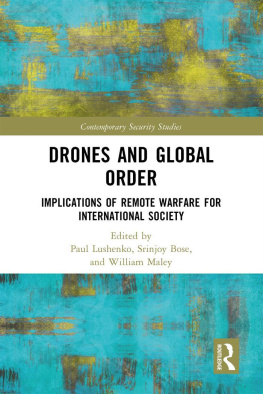
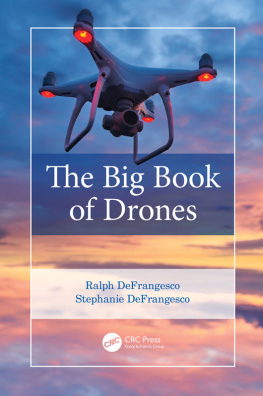
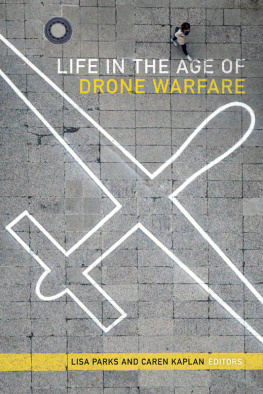
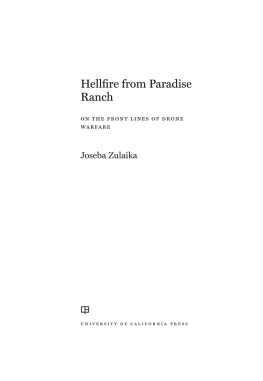
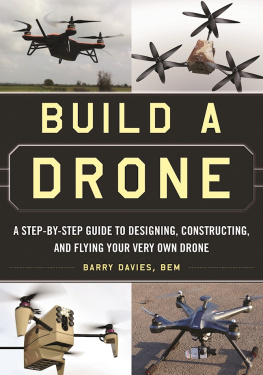
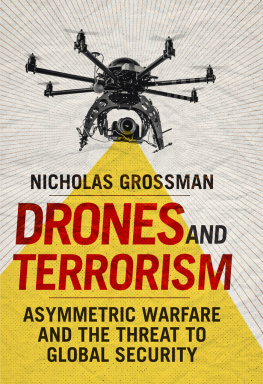
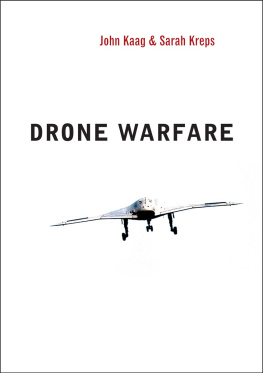
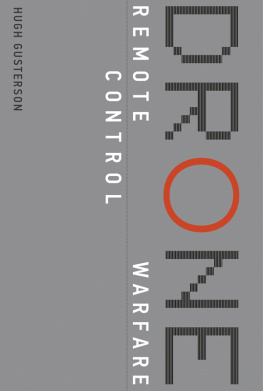
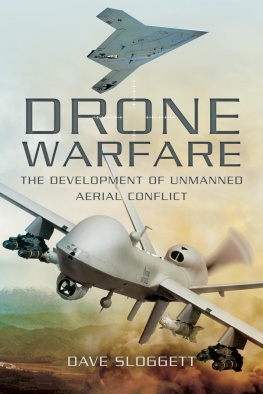

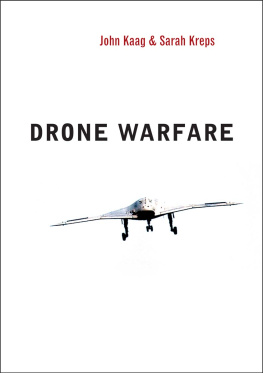
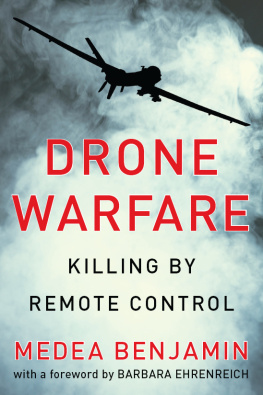
 TM The paper used in this publication meets the minimum requirements of American National Standard for Information Sciences Permanence of Paper for Printed Library Materials, ANSI/NISO Z39.48-1992.
TM The paper used in this publication meets the minimum requirements of American National Standard for Information Sciences Permanence of Paper for Printed Library Materials, ANSI/NISO Z39.48-1992.